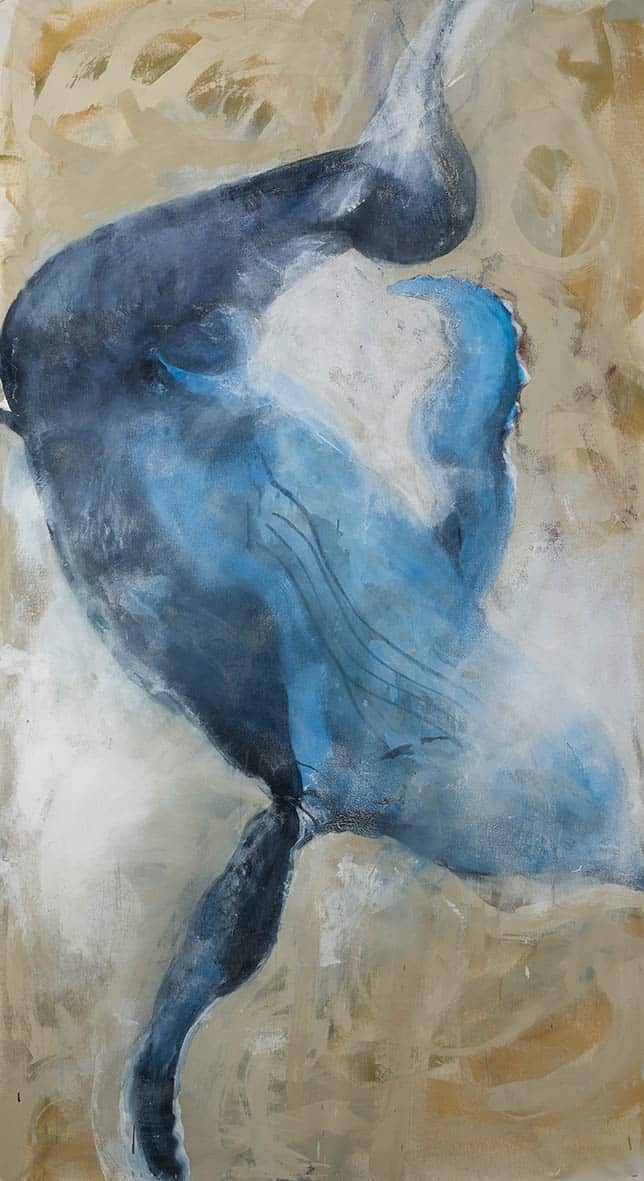Pigment, oil and gesso on raw canvas 5’2”x5.1”
This second painting is the second with the theme of animals hunted to the brink of extinction by man and then brought back from the edge, mainly by man’s efforts.
This time, I have chosen two animals from the Artic regions, the Polar Bear and the fabulous shape of the huge skull of the Musk Ox.
Musk Oxen were hunted on a huge scale for their hides and meat, Today, fortunately, legislation protects herds in Alaska, Canada, Norway, and Siberia, where the animals now live on reserves.
They are also now farmed in some areas and are becoming almost domesticated. The Polar bear though is not so fortunate. As we know his environment is changing so much due to climate changes that it is possible they may not survive.



